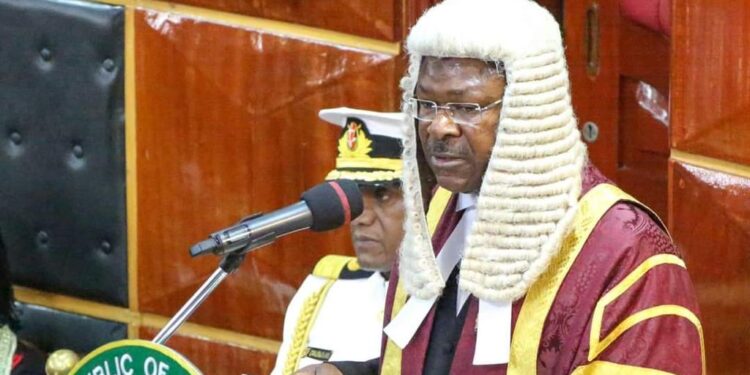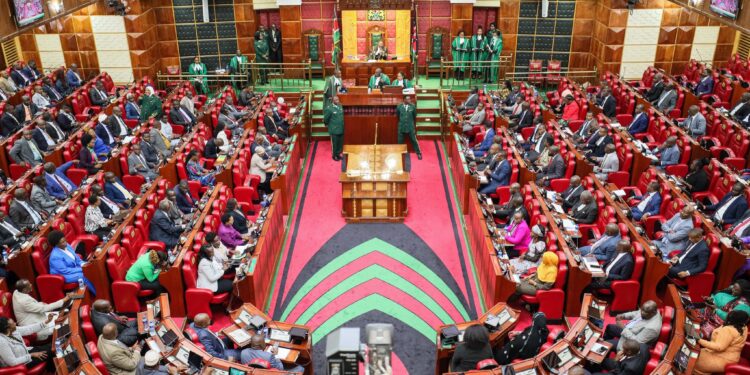The High Court has declared the National Government Constituency Development Fund (NGCDF) unconstitutional.
In a ruling delivered on Friday, September 20, a three-judge bench ruled that the constitution of Kenya does not give the National Assembly the powers of undertaking functions at the constituency level.
The three-judge bench consisting of Judge Kanyi Kimondo, Justice Mugure Thande and Lady Justice Roselyne Aburili also found that the NGCDF Act created a duplication of activities or wastage of scarce resources.
However, two of the judges voted to give the fund more time to allow completion of pending projects. As per the final ruling, the NGCDF will cease functioning on June 30, 2026, at midnight.
“The National Government Constituencies Development Fund 2015 as amended in 2022 and 2023 is hereby declared unconstitutional,” Judge Kanyi Kimondo read in the ruling.

“The NGCDF and all its projects, programs and activities will cease to operate on June 30, 2026, at the stroke of midnight.”
Why judges declared NGCDF unconstitutional
Justice Mugure Thande who dissented on the decision to extend NGCDF’s lifespan argued that extending the fund beyond the financial year would allow the continuation of an illegality.
Also Read: Waititu Proposes Radical Changes on Bursaries and CDF
On the question of whether the NGCDF Act of 2015 violates the structure of devolution, the judges emphasized the importance of devolution in Kenya and took issue with duplication of functions.
The Court added that creation of the constituency as a delivery level affected the structure of devolution and hence it amounts to wastage of resources.
In addition, the bench took issue with the implications of NGCDF to the doctrine of separation of powers.
According to the judges, the role of MPs as stipulated in the constitution is legislation, representing their constituents and oversight but NGCDF saw them turn to service providers.
Also Read: Wetangula Starts Process of Merging All Bursaries & Scholarships Including CDF to One Fund
Other concerns highlighted in the ruling include the failure to involve the Senate in passing the NGCDF Act despite its implications to devolved functions.
MPs struggle to save NGCDF
The Friday, September 20, ruling is another blow to the CDF which has faced several legal tests in its history.
In 2022, the Supreme Court dealt a major blow to the fund after declaring the Constituency Development Fund (CDF) Act 2013 unconstitutional.
The country’s apex court found that CDF was a violation of the separation of power doctrine while highlighting other concerns regarding division of revenue as guided by the Public Finance Management Act.
The Supreme Court ruling in 2022 was a culmination of a protracted court battle that commenced in 2015.
Members of the National Assembly would then introduce another bill in 2023 that was a modification of the NGCDF Act 2015.
The bill passed in 2023 enhanced the CDF kitty to increase allocation of resources towards scholarships, school feeding programs, among other functions in the education sector.
President William Ruto has also been on record advocating for the use of CDF to bridge development gaps in the grassroots level through projects including construction of digital hubs and other IT-programs.
Whilst the CDF has been lauded for some advancements realized in the education sector, critics have taken issue with the distribution of funds under the MPs-led bursary programs.
A proposal by Speaker Moses Wetangula, for example, recommends the merging of bursaries and scholarships in the education sector to one, a move that would affect one of the major CDF functions.











































































